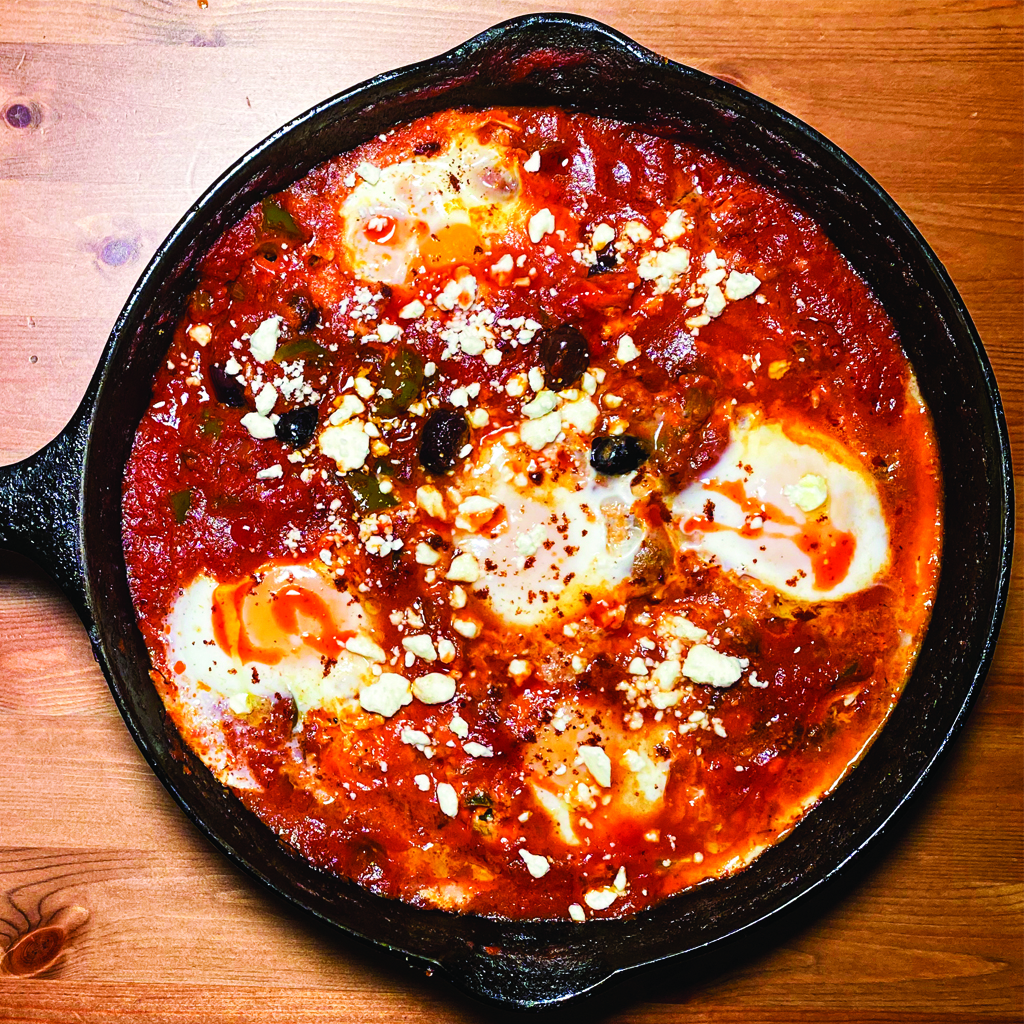
SHAKSHOUKA — North African Tomato and Pepper Stew with Cumin, Olives, and Whole Poached Eggs
Shakshouka — a bright and colorful stew of red tomatoes, orange and green peppers, and sunny yellow eggs — is prepared in a variety of ways all over North Africa, the Mediterranean, and the Middle East. Some versions are hot and spicy, while others add eggplant and squash and serve it with a salty white cheese or a special savory sausage. But where was the first shakshouka prepared, and how did it evolve into the dish that is most popular today?
The foundation for the modern shakshouka may have its roots in an old Ottoman recipe of cooked vegetables and chopped meat by the same name (şakşuka) that wove its way throughout the Middle East and North Africa. Another theory is that the dish evolved from a North African stew called chakhchoukha made of vegetables, chopped lamb, and torn pieces of bread, and that the name derived from an Algerian-Arabic word meaning “tearing into small pieces.” With the much later introduction of New World tomatoes and peppers to Europe and Africa by Spanish and Portuguese explorers in the 15th and 16th centuries the base of the stew changed “red” to more closely resemble what is prepared today in North Africa, the Middle East, Turkey, and Europe. Replacing the meat with eggs (either hard-boiled, scrambled, fried, or whole poached) and turning the stew vegetarian and parve/non-dairy might have been a kosher adaptation by North African (likely Tunisian) Jews so that the dish could be more easily served with both meat and dairy meals without conflict.
This interactive hands-on seminar will teach you how to make a basic shakshouka that you can easily adapt to your own taste. Participants will come away with an increased understanding of the rustic flavors of North Africa, the Mediterranean, and the Middle East, and how to prepare this healthy, delicious, and beautiful dish for any occasion and any season.

